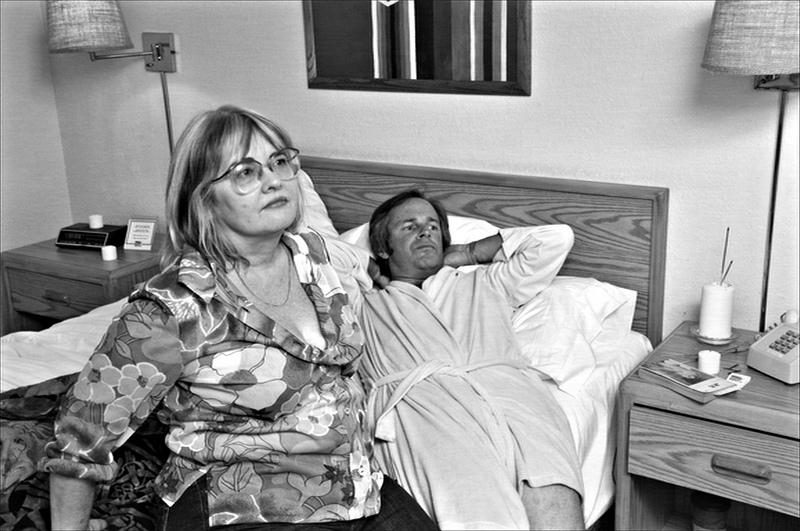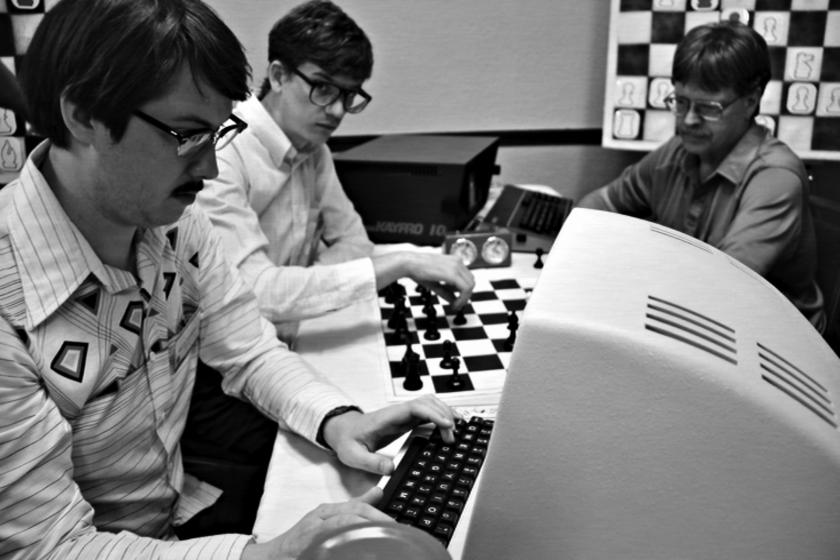Hailed in some quarters as a wily and satirical retro-classic, Andrew Bujalski's Computer Chess depends for its survival on threading its way through the eye of a tiny nostalgic needle. Bujalski's intention was to create a kind of hommage to the single-minded, possibly autistic computing pioneers of the early Eighties, often unsightly weirdos with hilarious hair and no clothes sense who nonetheless "saw this mountain and insisted on climbing it," as Bujalski puts it.
After barely managing to sit through the first 10 minutes, in which creators of rival computer chess programs at a weekend convention mumbled their way through a panel discussion so lethally dull it would have caused the teeming zombies of The Walking Dead to flee in terror, I found it hard to believe that the ending of this film could still be another 82 minutes away. That I eventually managed to make it to the closing credits wasn't down to stuff like character or action, but to some of the tiny incidental pleasures the director had managed to build into his enormously eccentric structure.
A single scene shot on colour film was like a psychedelic eruption
For example, the piece was almost entirely shot on a vintage video camera in the distinctive smudgy, detail-free monochrome of three decades ago (in nearly-square 4:3 aspect, of course), which made an appropriate match for some of the computer equipment on display. These were the days when computers had to be wheeled into rooms on trolleys, had tiny screens which only displayed lines of jagged text, but at least had the merit of fat, chunky keys seemingly robust enough to survive battlefield conditions. A single scene shot on colour film, complete with lens-flare and erratic focus, was like a psychedelic eruption.
Again, Bujalski's eye for period motor vehicles, 1980s telephones and hotel rooms with hideous wall-lamps and deplorable abstract "art" offered some occasional chortles. There was also some freak-show fun with a rebirthing therapy group and a cringesomely repulsive couple (pictured below) who tried to entice monosyllabic nerd Peter, from Caltech, into a threesome ("there's only one rule - you have to be free.")
 My major problem, though, was getting any grip on the characters. The director's approach was so laissez-faire, letting events creep along within an illusion of real-time randomness, that the assembled geeks, with their greasy flops of hair, acne and bushy moustaches, merged into a kind of unhygienic moving wallpaper. Among the few who stood out were a slobby English guy called Les and the overbearing and argumentative Mike Papageorge (Myles Paige), an "independent programmer" indignant at being shouldered aside by the well-heeled likes of Allied Labs. Professor Pat Henderson (Gerald Peary, a real-life professor and film critic) helmed the computer-chess conference from inside his personal bubble of autocratic self-importance.
My major problem, though, was getting any grip on the characters. The director's approach was so laissez-faire, letting events creep along within an illusion of real-time randomness, that the assembled geeks, with their greasy flops of hair, acne and bushy moustaches, merged into a kind of unhygienic moving wallpaper. Among the few who stood out were a slobby English guy called Les and the overbearing and argumentative Mike Papageorge (Myles Paige), an "independent programmer" indignant at being shouldered aside by the well-heeled likes of Allied Labs. Professor Pat Henderson (Gerald Peary, a real-life professor and film critic) helmed the computer-chess conference from inside his personal bubble of autocratic self-importance.
As a flashback to the binary-code swamp out of which eventually crawled Steve Jobs and Jony Ive, this was certainly empirical proof that we've come a long way. That doesn't mean I have to go back there, though.
Overleaf: watch the trailer for Computer Chess















Add comment